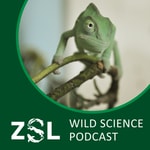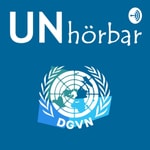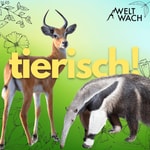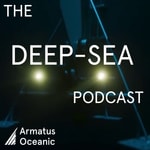ZSL Wild Science Podcast – Details, episodes & analysis
Podcast details
Technical and general information from the podcast's RSS feed.

ZSL Wild Science Podcast
Zoological Society of London
Frequency: 1 episode/59d. Total Eps: 44

Recent rankings
Latest chart positions across Apple Podcasts and Spotify rankings.
Apple Podcasts
🇨🇦 Canada - naturalSciences
14/03/2025#89🇨🇦 Canada - naturalSciences
13/03/2025#72🇨🇦 Canada - naturalSciences
12/03/2025#68🇨🇦 Canada - naturalSciences
11/03/2025#51🇨🇦 Canada - naturalSciences
10/03/2025#42🇨🇦 Canada - naturalSciences
28/02/2025#87🇨🇦 Canada - naturalSciences
27/02/2025#77🇨🇦 Canada - naturalSciences
26/02/2025#59🇨🇦 Canada - naturalSciences
25/02/2025#41
Spotify
No recent rankings available
Shared links between episodes and podcasts
Links found in episode descriptions and other podcasts that share them.
See all- https://ukcop26.org/
57 shares
- https://unfccc.int/
25 shares
RSS feed quality and score
Technical evaluation of the podcast's RSS feed quality and structure.
See allScore global : 48%
Publication history
Monthly episode publishing history over the past years.
ZSL #045 BONUS Nature's Negotiators: Saving the planet one meeting at a time
lundi 30 décembre 2024 • Duration 16:59
After our Nature’s Negotiators miniseries, where we learned all about the complexities, challenges and importance of United Nations climate and biodiversity meetings, we wanted to give the gift of a bonus episode to round things off! We catch up with Bethan to hear how things went after she attended COP29, United Nations Climate Change Conference, in Azerbaijan.
Overview
00:11 Harriet McAra, Host of Wild Science, Episode introduction
00:54 Bethan Laughlin, ZSL’s Senior Policy Specialist, on how the finance negotiations at COP29 played out
06:37 Bethan on the strength of language used in texts agreed at COP29, and how that came to be
10:38 Bethan on the accuracy of the portrayal of COP29 in the media
12:38 The other themes discussed at COP29
14:04 What can be expected at the next climate COP in Belem, Brazil
16:17 Outro
Resources
- If there’s a topic you’d like to hear on a future podcast, or if you’d like to share your thoughts, email the ZSL Wild Science Podcast at: wild.science@zsl.org
- Check out our science and conservation work at: www.zsl.org/Science or www.zsl.org/conservation
- Bethan Laughlin: https://www.zsl.org/about-zsl/our-people/bethan-laughlin
- ZSL’s United Nations and Intergovernmental Policy Engagement: https://www.zsl.org/what-we-do/conservation/creating-change/informing-policy/united-nations-and-intergovernmental-engagement
- ZSL’s COP16 position statement: https://cms.zsl.org/sites/default/files/2024-10/CBD%20COP16%20Key%20Asks%20-%20October%202024.pdf
- “Negotiations ran out of time, but action on biodiversity loss cannot be postponed…” Blog written by Georgina Chandler: https://www.zsl.org/news-and-events/feature/cbd-cop16-negotiations-ran-out-time-action-biodiversity-loss-cannot-be
Get in touch
- Email wild.science@zsl.org with your questions, comments, and thoughts for future episodes!
- Tweet us @ZSLScience with the hashtag #ZSLWildScience
- Follow us on Facebook @ZSLScienceAndConservation
ZSL #044 Nature's Negotiators: The UN's Wildest Diplomatic Mission - Part 2
mercredi 18 décembre 2024 • Duration 35:02
2024 has been a big year for international climate policy, with two UN Conference of Parties, or COPs, taking place in quick succession; COP16 in Colombia followed just a few weeks later by COP29 in Azerbaijan. In this episode of Wild Science, we follow on from part one of our Nature’s Negotiators miniseries, and are once again joined by Bethan Laughlin, ZSL Senior Policy Specialist. We discuss the challenges and successes of the two biodiversity and climate COPs, tackle some new UN lingo, and hear about key hopes for the future of climate policy.
Overview
00:12 Harriet McAra, Host of Wild Science, Episode introduction
01:12 Bethan Laughlin, ZSL’s Senior Policy Specialist, speaking from COP16 in Cali, Colombia
02:13 Interview with Bethan Laughlin on the successes of COP16
04:05 Insights on the ground at COP16: Davi Teles, Mónica Franco Gutiérrez & Liliana Patricia Saboyá Acosta
07:47 Georgina Chandler, ZSL’s Head of Policy and Campaigns, on digital sequence information
10:34 Continued: Interview with Bethan on the challenges of COP16 and opportunities for the future
17:56 Carly Siege, Manager for International Policy Conservation International
19:30 Thomas Pickford, UK Partnerships and Policy Lead, The Nature Conservancy
30:45 Final reflections, an update from Bethan, and outro
Resources
- If there’s a topic you’d like to hear on a future podcast, or if you’d like to share your thoughts, email the ZSL Wild Science Podcast at: wild.science@zsl.org
- Check out our science and conservation work at: www.zsl.org/Science or www.zsl.org/conservation
- Bethan Laughlin: https://www.zsl.org/about-zsl/our-people/bethan-laughlin
- Georgina Chandler: https://www.zsl.org/about-zsl/our-people/georgina-chandler
- Read more about our EDGE Fellows: https://www.edgeofexistence.org/edge-fellows/
- ZSL’s COP16 position statement: https://cms.zsl.org/sites/default/files/2024-10/CBD%20COP16%20Key%20Asks%20-%20October%202024.pdf
- “Negotiations ran out of time, but action on biodiversity loss cannot be postponed…” Blog written by Georgina Chandler: https://www.zsl.org/news-and-events/feature/cbd-cop16-negotiations-ran-out-time-action-biodiversity-loss-cannot-be
Get in touch
- Email wild.science@zsl.org with your questions, comments, and thoughts for future episodes!
- Tweet us @ZSLScience with the hashtag #ZSLWildScience
- Follow us on Facebook @ZSLScienceAndConservation
ZSL #034 Marine habitat restoration in the UK: tales of oysters, saltmarsh, kelp, and seagrass
Episode 34
vendredi 6 août 2021 • Duration 52:58
Coastal marine habitats are essential to the health of our marine ecosystem, and hold both environmental and social importance. They provide valuable ecosystem services, but for decades they have been impacted by harmful human activities. In her final episode as host, Monni Böhm will be joined by co-host Celine Gamble and an expert panel to explore the need for active restoration to conserve four incredible marine habitats: native oyster beds, saltmarshes, kelp forests and seagrass. How can we scale up these restoration efforts? What makes some species in these habitats ecological superheroes? And what on earth is a scuba-diving spider?
Please note: this episode was recorded in 2020.
Guests:
- Celine Gamble, Zoological Society of London
- Dr Joanne Preston, University of Portsmouth
- Angus Garbutt, UK Centre for Ecology & Hydrology
- Dr Ian Hendy, The Blue Marine Foundation
- Dr Richard Unsworth, Swansea University and Project Seagrass
Overview
01:06 – Dr Monni Böhm introduces the co-host of this episode, Celine Gamble, to discuss why marine habitat restoration is needed, and introduce the Native Oyster Network.
05:29 – Monni and Celine are joined by Dr Joanne Preston who will discuss the forgotten ecosystem of oyster beds, and how to restore native oyster reefs in the UK.
14:51 – Angus Garbutt describes the diversity of saltmarshes of the UK, provides unique insight into their ecological and cultural importance, and the methods used to restore them.
28:12 – Monni and Celine introduce Dr Ian Hendy who explains what can be done to ‘Help our Kelp’ and why conserving it is crucial for marine biodiversity in the UK.
39:16 – Dr Richard Unsworth joins the hosts to talk about the importance of seagrasses, and the lessons learned from the UK’s first major seagrass restoration project .
Resources
- 25 Year environment plan: https://www.gov.uk/government/publications/25-year-environment-plan
- UN decade on Ecosystem Restoration: https://www.decadeonrestoration.org/
- Native Oyster Network: https://nativeoysternetwork.org/
- Native Oyster Network Habitat Restoration Handbook (November 2020): https://nativeoysternetwork.org/wp-content/uploads/sites/27/2020/11/ZSL00150%20Oyster%20Handbook_WEB.pdf
- ZSL Native oyster restoration: https://www.zsl.org/conservation/regions/uk-europe/thames-conservation/native-oyster-restoration
- Twitter: @NativeOysterNet; #OysterLove
- UKCEH Restoration of coastal habitats: https://www.ceh.ac.uk/our-science/projects/restoration
- The Saltmarsh App: https://www.saltmarshapp.com/
- Blue Marine Foundation Sussex Kelp Project: https://www.bluemarinefoundation.com/projects/sussex-kelp/
- Lyme Bay Reserve: https://www.lymebayreserve.co.uk/science/
- Research on Kelp and Oyster restoration in Australia: kelp and oyster restoration in Australia? https://besjournals.onlinelibrary.wiley.com/doi/10.1111/1365-2664.13719
- Project Seagrass (Seagrass Ocean Rescue): https://www.projectseagrass.org/
- Chesapeake Bay Seagrass Restoration: https://www.vims.edu/research/units/programs/sav1/restoration/index.php
- 750,000 seeds planted in Wales in UK’s Biggest Seagrass Restoration Scheme: https://www.swansea.ac.uk/press-office/news-events/news/2020/03/750000-seeds-planted-in-wales-inuks-biggest-seagrassrestoration-scheme-.php
ZSL #033 Putting reptiles on the map: ZSL Science for reptilian conservation
Episode 33
mercredi 19 mai 2021 • Duration 49:42
Reptiles - lizards, snakes, turtles and crocodilians – make up almost one third of all land vertebrate species on Earth, and also occur in many marine and freshwater systems. Yet despite their amazing diversity, reptiles remain hugely underrepresented in conservation research and action, when compared to mammals, birds, and even amphibians. In this episode, our host Ellie Darbey finds out from four fantastic reptile experts how this is changing through increased global efforts to put reptiles on the conservation map. What key advances in species assessments have already made an impact for reptile conservation? How does ZSL’s science and conservation work directly contribute to protecting reptiles in the wild? And wait…where is Monni?
Guests:
- Dr Monika Böhm, Freshwater Coordinator, Indianapolis Zoo Global Center for Species Survival.
- Dr Rikki Gumbs, EDGE Postdoctoral Research Scientist, Zoological Society of London.
- Emmanuel Amoah, Executive Director, Threatened Species Conservation Alliance (THRESCOAL).
- Benjamin Tapley, Head of the Reptile Team, Zoological Society of London.
Overview
01:38 – Ellie welcomes the first guest, Dr Monni Böhm, to discuss how assessments like the IUCN Sampled Red List Index and Global Assessment of Reptile Distributions are essential for advancing the agenda for reptilian conservation.
14:30 – Dr Rikki Gumbs joins the podcast to talk about the reptilian Tree of Life, and the purpose and impact of ZSL’s EDGE of Existence programme.
24:08 – Emmanuel Amoah discusses the aims of Ghanaian NGO, THRESCOAL, set up following his EDGE Fellowship, and how community-led conservation can be used to help protect the West African slender-snouted crocodile.
33:32 – Ellie is joined by the final guest, Benjamin Tapley, who provides an overview of the contribution of zoos to conservation in the wild, using the example of the Big-Headed Turtle project in Vietnam.
46:25 – All four guests provide their recommendations for the next step in reptile conservation.
Resources
- The IUCN Sampled Red List Index: zsl.org/global-biodiversity-monitoring/indicators-and-assessments-unit/the-sampled-red-list-index
- Global Reptile Assessment: natureserve.org/conservation-tools/projects/global-reptile-assessment
- The Global Assessment of Reptile Distributions: gardinitiative.org/
- Indianapolis Zoo: indianapoliszoo.com/conservation/
- ZSL’s EDGE of Existence Programme: edgeofexistence.org/
- Imperial College London’s Grantham Institute: https://granthaminstitute.com/
- THRESCOAL: threscoal.org/
- Emmanuel’s ZSL EDGE project page: edgeofexistence.org/fellow/emmanuel-amoah/
- ZSL London Zoo Reptile House: zsl.org/zsl-london-zoo/exhibits/reptile-house
- ZSL online Science and Conservation Event: zsl.org/science/whats-on/putting-reptiles-on-the-map-zsl-science-for-reptilian-conservation
- Related ZSL Wild Science podcast episodes: zsl.org/zsl-wild-science-podcast
- #007: Ten years on the EDGE of Existence
- #010: Species in the red: behind the scenes of the IUCN Red List
- #015: Biodiversity indicators: getting the measure of biodiversity and what it all means
ZSL #032 Coral reefs: running the gauntlet of climate change
Episode 32
jeudi 1 avril 2021 • Duration 42:40
Coral reefs are the most biodiverse marine ecosystems in the world, and more than 500 million people worldwide rely on coral reefs for their livelihoods, food security, and coastal protection. However, coral reefs are impacted by several threats, including rises in sea-surface temperature due to climate change. Join Monni as she navigates these unique underwater ecosystems with the help of five fantastic coral connoisseurs. How can new technologies be used to protect and preserve coral reefs for the future? Why is connectivity important? And which fascinating fact will make your brain (coral) explode?
Guests:
- Dr Catherine Head, Institute of Zoology, ZSL and University of Oxford
- Dr Jamie Craggs FLS, Horniman Museum & Gardens and Natural History Museum, London
- Dr James Guest, Newcastle University
- Dr Rosa van der Ven, Wageningen University
- Dr Chris Yesson, Institute of Zoology, ZSL
Overview
01:05 – Monni is joined by the co-host of this episode, Dr Catherine Head, an expert in applied ecology and evolution in marine ecosystems, particularly coral reefs, and how tools like population genetics can help conserve them.
05:29 – First up, Monni and Catherine welcome Dr Jamie Craggs, to discuss how captive breeding techniques in aquaria can be used for coral conservation.
14:40 – Dr James Guest joins the podcast to talk about his work with ‘Coral Assist’, a project which examines the feasibility of using “assisted gene flow” and selective breeding to assist corals in the face of climate change.
24:14 – Dr Rosa van der Ven discusses genetic connectivity of corals between reefs, and explains why connectivity is important for their conservation.
30:52 – Monni and Catherine are joined by their final guest, Dr Chris Yesson, cold water coral expert, to discuss how genetic techniques like coral barcoding are used to identify corals in aquaria, and how this can be useful coral conservation.
Resources
- Project Coral: https://www.horniman.ac.uk/project/project-coral/
- Coral Assist: https://www.coralassistlab.org/
- ZSL Wild Science Podcast #011 Can we still save coral reefs and what if we don’t?: https://www.zsl.org/zsl-wild-science-podcast
- ZSL’s work with coral reefs in the Chagos Archipelago: https://www.zsl.org/regions/uk-overseas-territories/chagos-archipelago
- Bertarelli Foundation: https://www.fondation-bertarelli.org/
Hosted and edited by Dr Monni Böhm, ZSL Research Fellow, and produced by Eleanor Darbey, ZSL Scientific Events Coordinator.
ZSL #031 Habitat loss and human health – understanding the links between ecosystem degradation and infectious disease outbreaks
Episode 31
jeudi 4 mars 2021 • Duration 38:53
After more than a year of Covid-19 impacting global populations, health systems and economies, one of the major questions being asked was how did this start, and how can we prevent it from happening again? As we humans increasingly disturb our planet’s natural habitats and convert them to agricultural and urban areas, the way we interact with wildlife around us also changes. In this episode, Monni turns to a team of experts in wildlife diseases, to discuss this link between ecosystem degradation and infectious disease outbreaks. What makes an animal a good host for carrying zoonotic diseases? Can we predict and prevent infectious disease outbreaks in the future? And exactly what does a job as ‘human bait’ entail?
Guests:
- Dr Rory Gibb, London School of Hygiene and Tropical Medicine
- Dr Christina Faust, Pennsylvania State University
- Dr Kimberly Fornace, London School of Hygiene and Tropical Medicine
Overview
01:40 Monni welcomes Dr Rory Gibb, to discuss zoonotic hosts and their response to land-use change, and how we should move forward to help human health in the future.
18:28 Dr Christina Faust joins Monni to explore disease transmission, explaining where transmission is more likely to happen in different types of landscapes, and how this could be tracked to avoid future outbreaks in humans.
28:43 Monni is joined by the final guest, Dr Kimberly Fornace, to discuss the Monkey Bar project, and how different technologies such as drones and radio collars were used to monitor monkey malaria.
Hosted by Dr Monni Böhm, ZSL Research Fellow and produced by Eleanor Darbey, ZSL Scientific Events Coordinator.
ZSL #030 Can surveillance technology and social science address rule-breaking and wildlife crime?
Episode 30
mardi 2 février 2021 • Duration 47:28
Law breaking, such as poaching or fishing inside marine reserves, is a great challenge to conservationists because research is often complicated by ethics and data privacy. However, important technological progress has been made in recent years, especially in the fields of surveillance and vessel tracking. Join Monni as she finds out from a panel of experts how machine learning and technology developments in drones, infrared imaging, global positioning systems and cameras can help tackle wildlife crime. How can social science help us understand the motivations behind rule-breaking? And what rule is Monni so afraid of admitting that she once broke?
Guests:
- Dr Tom B Letessier, Research Fellow at the Institute of Zoology, ZSL
- Dr Kristina Boerder, Postdoctoral Fellow at the Dalhousie University
- Professor Serge Wich, Liverpool John Moores University
- Dr Colin Beale, Reader at the University of York
- Dr Ana Nuno, NOVA University Lisbon and University of Exeter
Overview
00:53 - Monni is joined by the co-host of today’s episode, Dr Tom B Letessier, an expert in the use of drones and other technologies for marine protected area (MPA) surveillance, fisheries enforcement and megafauna monitoring.
03:49 - Monni and Tom welcome Dr Kristina Boerder to discuss the use of automatic identification systems (AIS) to track illegal activity of fishing vessels in MPAs.
17:48 - Professor Serge Wich joins the hosts to take the surveillance discussion on land, using drones and infrared cameras in tropical terrestrial ecosystems.
24:35 - Dr Colin Beale discusses how to tackle wildlife crime in Africa using algorithms to analyse evidence of illegal activity in the bush and inform ranger-led patrols.
33:44 - Monni and Tom are joined by their final guest, Dr Ana Nuno, to find out how social science can address rule breaking in conservation.
Resources:
- Guardian article on the use of technology to stop illegal trade: https://www.theguardian.com/environment/2019/dec/08/wildlife-trafficking-science-technology-come-to-rescue-end-illegal-trade
- Guardian article on drones and big datat: https://www.theguardian.com/education/2019/feb/18/drones-and-big-data-the-next-frontier-in-the-fight-against-wildlife-extinction
- Global Fishing Watch: https://globalfishingwatch.org/
- Link to New York Times article on Palau vs the Poachers: https://www.nytimes.com/2016/02/21/magazine/palau-vs-the-poachers.html
- Review of the Outlaw Ocean book: https://www.theguardian.com/books/2019/oct/02/the-outlaw-ocean-by-ian-urbina-review
ZSL #029 The future of biodiversity conservation - different dimensions of conservation thinking
Episode 29
mardi 22 décembre 2020 • Duration 43:55
Conservationists are working hard to stem global biodiversity loss. Yet, just like biodiversity itself, the conservation movement is very diverse, with a variety of ideas shaping its framing, purpose and application. In this episode, Monni and co-hosts Yara Shennan-Farpón, Helen Muller and Thalassa McMurdo Hamilton, speak with Dr Chris Sandbrook, co-creator of the Future of Conservation Survey, about some of the lessons learned from analysing the perspectives of nearly 10,000 conservationists from around the world. What could the future of conservation look like? And what would need to happen for us to get there?
Take the survey to find out and reflect on where you think the future of conservation lies: https://www.futureconservation.org/
ZSL #028 What's next for rewilding?
Episode 28
vendredi 11 décembre 2020 • Duration 47:09
Rewilding has emerged as a captivating, but controversial, concept in conservation. Depending on how rewilding is defined, it aims to increase “wildness” of nature, regenerate ecosystem functioning, develop self-sustaining ecosystems, or a combination of these. Join Monni as she finds out from the experts how real “wildness” can be achieved, and why now is an important time for the UK to be thinking about rewilding. What is even possible in places like the UK where we have quite limited space? Should people be part of rewilding? And why can the Tamworth Pig be considered the hippopotamus of the UK?
ZSL #027 Madagascar's missing megafauna: life after lemurs, hippos and elephant birds
Episode 27
jeudi 14 mai 2020 • Duration 44:52
Madagascar is famed for its incredible biodiversity and charismatic lemurs, but has also seen extensive loss of natural habitat. Monni finds out from a panel of Madagascar aficionados what the island has been like in the past and what the challenges are for its surviving wildlife. How big is an elephant bird and its poo? What can old bones tell us? What are the ups and downs of conservation efforts on Madagascar? And why is the Madagascar pochard such a special bird?
This episode was recorded in November 2019









